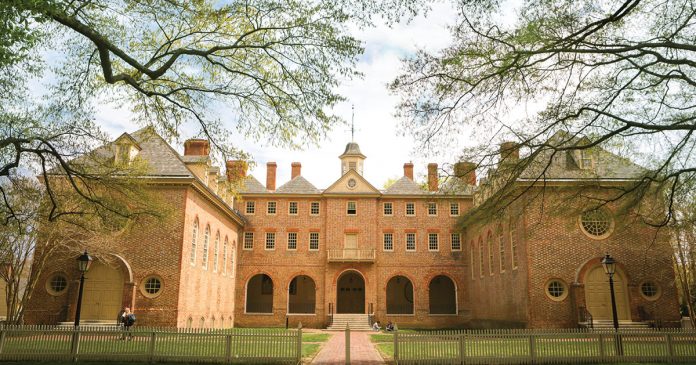The College of William and Mary has been gifted a $1 million dollar grant from the Andrew W. Mellon Foundation to increase research and education of the College’s history with enslaved peoples. The grant will specifically fund a project called Sharing Authority to Remember and Re-Interpret the Past, which will last from July 1, 2019- June 30, 2024. The grant will mainly support two current slave research bodies: The Lemon Project and President James Monroe’s Highland, a house museum of the fifth president which was granted to the College by the last private owner of the house Jay Winston Johns.
The Mellon Foundation, which has helped support the College and The Lemon Project in the past, funded this grant in connection to the 400th anniversary of African American slaves arriving in Jamestown. The grant aims to increase inclusivity and understanding on campus, and to highlight the legacy of enslaved peoples in the development of the College. Both the Lemon Project and the Highland will use this grant to further the understanding of enslaved people’s stories and honor them.
Mellon Foundation President Elizabeth Alexander spoke on the importance of building and understanding of slaves and the College. Alexander describes the research being done as a way to shine a light on a group that was ignored and oppressed.
“The William & Mary campus was built and maintained by dozens, if not hundreds, of enslaved people, including children,” Alexander said in a press release.
“The William & Mary campus was built and maintained by dozens, if not hundreds, of enslaved people, including children,” Alexander said in a press release. “By partnering with their descendants to conduct new research and share it widely with the public, William & Mary demonstrates how building meaningful partnerships can move communities towards reconciliation and lift up histories that have not yet been fully understood.”
The Lemon Project aims to use this grant to conduct genealogy research in hopes to preserve the stories of the slaves who built the main campus of the College. This research will be used to create the Memorial to African Americans Enslaved. The location of the memorial has yet to be determined.
James Monroe’s Highland will use this grant as a means to further their Oral History Initiative, which works to preserve the stories of descendants of African-American slaves. This initiative will work with the living descendants of slaves who lived on Highland farms and will allow for better research and understanding of underserved peoples and their stories.
During the second year of the grant, an interdisciplinary course will be taught at the College that showcases the research and information gained through the Highland and The Lemon Project. Monroe scholars will help by cataloging and assembling information gained during research.
President of the College Katherine Rowe described her excitement to illuminate the region’s history. Rowe stated that this grant will help the College and create a more inclusive history.
“The Andrew W. Mellon Foundation grant supports William & Mary’s commitment to partnering with our wider region and communities to illuminate our shared history,” said Rowe in the press release.
“The Andrew W. Mellon Foundation grant supports William & Mary’s commitment to partnering with our wider region and communities to illuminate our shared history,” Rowe said in the press release. “By sharing authority to re-interpret the past with descendants of those who lived and were enslaved at Highland, we are taking a new approach to how we tell that history. We believe we will be able to tell a fuller story this way, and one with more consequence, today.”
This article was updated Aug. 1, 2019 at 6:30 p.m. as a previous version of the article indicated that it was James Monroe who bequeathed the Highland home to the College and also suggested that the Memorial to African Americans Enslaved was being built in the historic part of campus.

